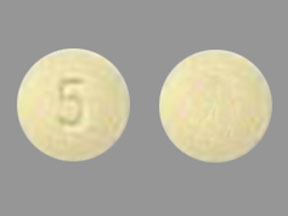Belsomra Side Effects
Generic name: suvorexant
Note: This document provides detailed information about Belsomra Side Effects associated with suvorexant. Some dosage forms listed on this page may not apply specifically to the brand name Belsomra.
Applies to suvorexant: oral tablet.
Precautions
It is very important that your doctor check your progress at regular visits to make sure this medicine is working properly and to check for unwanted effects.
If you think you need to take suvorexant (the active ingredient contained in Belsomra) for more than 7 to 10 days, be sure to discuss it with your doctor. Insomnia that lasts longer than this may be a sign of another medical problem.
This medicine will add to the effects of alcohol and other CNS depressants (medicines that make you drowsy or less alert). Some examples of CNS depressants are antihistamines or medicine for hay fever, other allergies, or colds, sedatives, tranquilizers, or sleeping medicine, prescription pain medicine or narcotics, medicine for seizures or barbiturates, muscle relaxants, or anesthetics, including some dental anesthetics. Check with your doctor before taking any of the above while you are using this medicine.
This medicine may cause some people to become drowsy or less alert than they are normally. Even though suvorexant is taken at bedtime, it may cause some people to feel drowsy or less alert on arising. Make sure you know how you react to suvorexant before you drive, use machines, or do anything else that could be dangerous if you are not alert.
If you develop any unusual and strange thoughts or behavior while you are taking suvorexant, be sure to discuss it with your doctor. Some changes that have occurred in people taking this medicine are like those seen in people who drink alcohol and then act in a manner that is not normal. Other changes may be more unusual and extreme, such as confusion, worsening of depression, hallucinations (seeing, hearing, or feeling things that are not there), suicidal thoughts, and unusual excitement, nervousness, or irritability.
This medicine may cause you to do things while you are still asleep that you may not remember the next morning. You could drive a car, sleepwalk, have sex, make phone calls, or prepare and eat food while you are asleep or not fully awake. Tell your doctor right away if any of these things occur.
This medicine may cause sleep paralysis (temporary inability to move or talk for up to several minutes while you are going to sleep or wake up) or have cataplexy-like symptoms (temporary weakness in your legs). Tell your doctor right away if you have these symptoms while you are using this medicine.
Do not take other medicines unless they have been discussed with your doctor. This includes prescription or nonprescription (over-the-counter [OTC]) medicines and herbal or vitamin supplements.
Serious side effects of Belsomra
Along with its needed effects, suvorexant may cause some unwanted effects. Although not all of these side effects may occur, if they do occur they may need medical attention.
Check with your doctor immediately if any of the following side effects occur while taking suvorexant:
More common side effects
- sleepiness or unusual drowsiness
Less common side effects
- unusual or abnormal dreams
Incidence not known
- changes in behavior
- discouragement
- fear or nervousness
- feeling sad or empty
- irritability
- lack of appetite
- loss of interest or pleasure
- loss of memory
- problems with memory
- seeing, hearing, or feeling things that are not there
- temporary inability to move or talk for up to several minutes while you are going to sleep or wake up
- temporary weakness in your legs
- thoughts of killing oneself
- tiredness
- trouble concentrating
Other side effects of Belsomra
Some side effects of suvorexant may occur that usually do not need medical attention. These side effects may go away during treatment as your body adjusts to the medicine. Also, your health care professional may be able to tell you about ways to prevent or reduce some of these side effects.
Check with your health care professional if any of the following side effects continue or are bothersome or if you have any questions about them:
More common side effects
Less common side effects
See also:
For healthcare professionals
Applies to suvorexant: oral tablet.
General adverse events
The most common adverse reaction was somnolence.[Ref]
Gastrointestinal
- Common (1% to 10%): Diarrhea, dry mouth[Ref]
Nervous system
- Common (1% to 10%): Headache, somnolence, dizziness[Ref]
Psychiatric
- Common (1% to 10%): Abnormal dreams[Ref]
Respiratory
- Common (1% to 10%): Cough, upper respiratory tract infection[Ref]
References
1. (2014) "Product Information. Belsomra (suvorexant)." Merck & Co., Inc
Frequently asked questions
More about Belsomra (suvorexant)
- Check interactions
- Compare alternatives
- Pricing & coupons
- Reviews (547)
- Drug images
- Dosage information
- During pregnancy
- FDA approval history
- Drug class: miscellaneous anxiolytics, sedatives and hypnotics
- Breastfeeding
- En español
Patient resources
Professional resources
Related treatment guides
Further information
Belsomra side effects can vary depending on the individual. Always consult your healthcare provider to ensure the information displayed on this page applies to your personal circumstances.
Note: Medication side effects may be underreported. If you are experiencing side effects that are not listed, submit a report to the FDA by following this guide.

